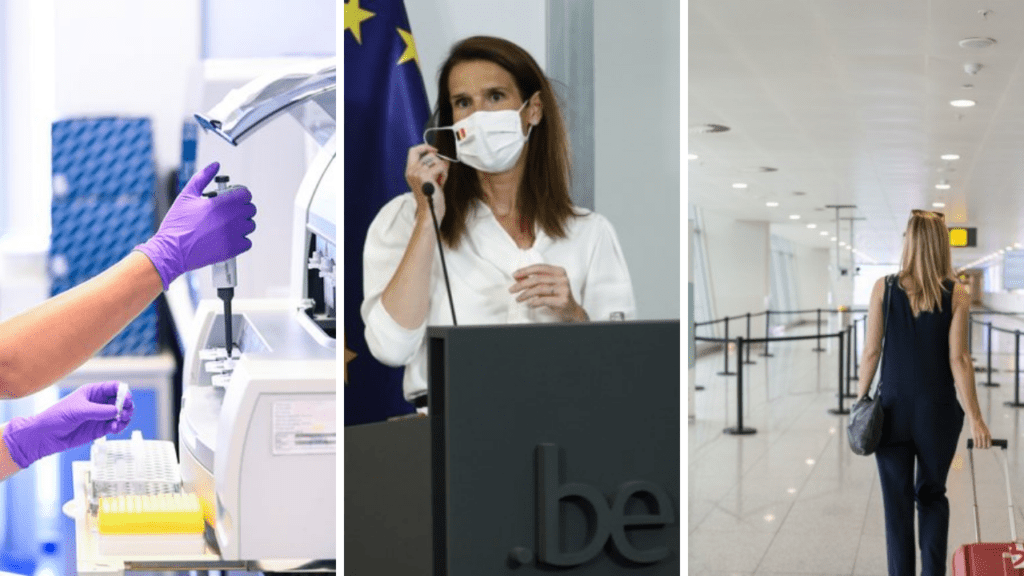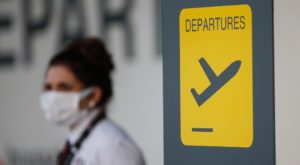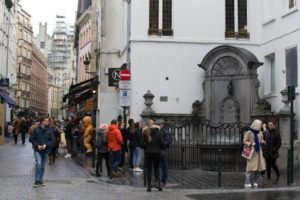Yesterday, Belgium's National Security Council announced its latest measures to stop the coronavirus from spreading further, which saw a few relaxations but no big changes.
“The measures we took at the end of July are proving to be effective,” said Prime Minister Sophie Wilmès at the press conference. “Yet, the virus is still present in our society.”
“Unfortunately, we know that no measures can completely stop the virus until there is a vaccine. The virus will continue to circulate for some time, we will have to learn to live with it,” Wilmès said.
“What we absolutely want to avoid is that we arrive at a breaking point, a point we cannot come back from. We will always have to stay vigilant,” she added, to make sure we do not have to return to a full lockdown.
Cross-border couples will soon be allowed to see each other again, and the people allowed at events have doubled again, but expected changes to the face mask rules or the number of people you are allowed to be in close contact with did not happen after all.
With that in mind, here are some of the top stories from around the country to get you up to speed.
Belgium in Brief is a free daily roundup of the top stories to get you through your lunch break conversations. To receive it straight to your inbox every day, sign up below:
1. Belgium’s Security Council: ‘Return to normal not yet possible’
Belgium has adapted the restrictions to prevent the further spread of the coronavirus in the country, announced Prime Minister Sophie Wilmès during a press conference on Thursday.
“The measures we took at the end of July are proving to be effective,” said Wilmès. “Yet, the virus is still present in our society.”
A return to normal is not yet possible, she stressed. You can find the latest update on the coronavirus regulations here.
2. 1,200 Belgians return from ‘red travel zones’ every day despite travel ban
Currently, an average of 1,200 people a day come back to Belgium from a red zone despite the ban on non-essential travel, according to figures presented by health officials during a press conference on Friday.
Since 1 August, the authorities have received a total of 852,000 Passenger Locator Forms, of which 42,000 from people who returned from a red zone, according to Karine Moykens, Chair of the Inter-Federal Testing and Tracing Committee.
“Travellers returning from a red zone can go to a test centre when they receive an activation code by text message,” Moykens said, adding that the list of test centres can be found on info-corona.be and corona-tracing.be. Read more.
3. Covid-19: Number of new cases continues to go down
An average of 505.6 people per day tested positive for the new coronavirus (Covid-19) in Belgium during the past week, according to figures by Sciensano on Friday.
The figure refers to the period from 11 to 17 August and reflects a fall of 20% in the numbers compared with the previous week.
In Brussels, 813 new cases were counted, 21 more than the previous week. All other provinces saw a fall in their numbers, of between one case for Luxembourg province and 531 fewer cases in Antwerp province. Read More.
4. Brussels colours red on European coronavirus map
Brussels turns red on Friday on the coronavirus map of the European Centre for Disease Prevention and Control (ECDC), meaning that Brussels has recorded more than 120 coronavirus infections per 100,000 inhabitants in the last two weeks.
Brussels thus follows various regions in northern Spain and the Balearic Islands, as well as parts of Romania and Bulgaria.
By Thursday, the whole of Belgium had switched to dark orange, when, after Flanders and Brussels, Wallonia also recorded more than 60 infections per 100,000 inhabitants in two weeks. Read more.
5. Face masks mandatory in Brussels until ‘at least mid-September’
The use of face masks in all public places of the Brussels-Capital Region will remain mandatory until at least mid-September, Minister-President Rudi Vervoort said.
“For as little as possible, but at least until mid-September,” Vervoort said, questioned on how long the obligation to wear a face mask in the capital would remain in force, following its introduction a week earlier.
“After the reopening of schools and the end of the holidays, we will study the figures to see how the situation is evolving,” he said as he left a National Security Council (NSC) meeting on Thursday. Read more.
6. Covid-19 symptoms appear in a fixed order, study reveals
The symptoms of Covid-19 infection appear in a fixed order – fever, cough, muscle pain, and then nausea/vomiting, and finally diarrhoea – according to a study carried out by scientists at the University of Southern California (USC).
Problems with the lungs, such as coughing and trouble breathing, are common to many viral diseases, including SARS, after which the new coronavirus was named.
However the thing that sets Covid-19 apart is the presence and timing of symptoms in the gastrointestinal (GI) tract. Read more.
7. Belgium will allow cross-border couples to unite from September
From September, Belgium will open its borders to cross-border couples who have been separated by travel bans because of the coronavirus, Prime Minister Sophie Wilmès announced during a press conference on Thursday.
After they called attention to their situation on social media for months, using the hashtags #LoveIsNotTourism and #LoveIsEssential, partners living in different countries will be able to unite again as of 1 September, the National Security Council decided.
“As we know, love knows no boundaries, and the physical separation for many international couples was no longer tenable,” Wilmès said. Read more.
Maïthé Chini
The Brussels Times



